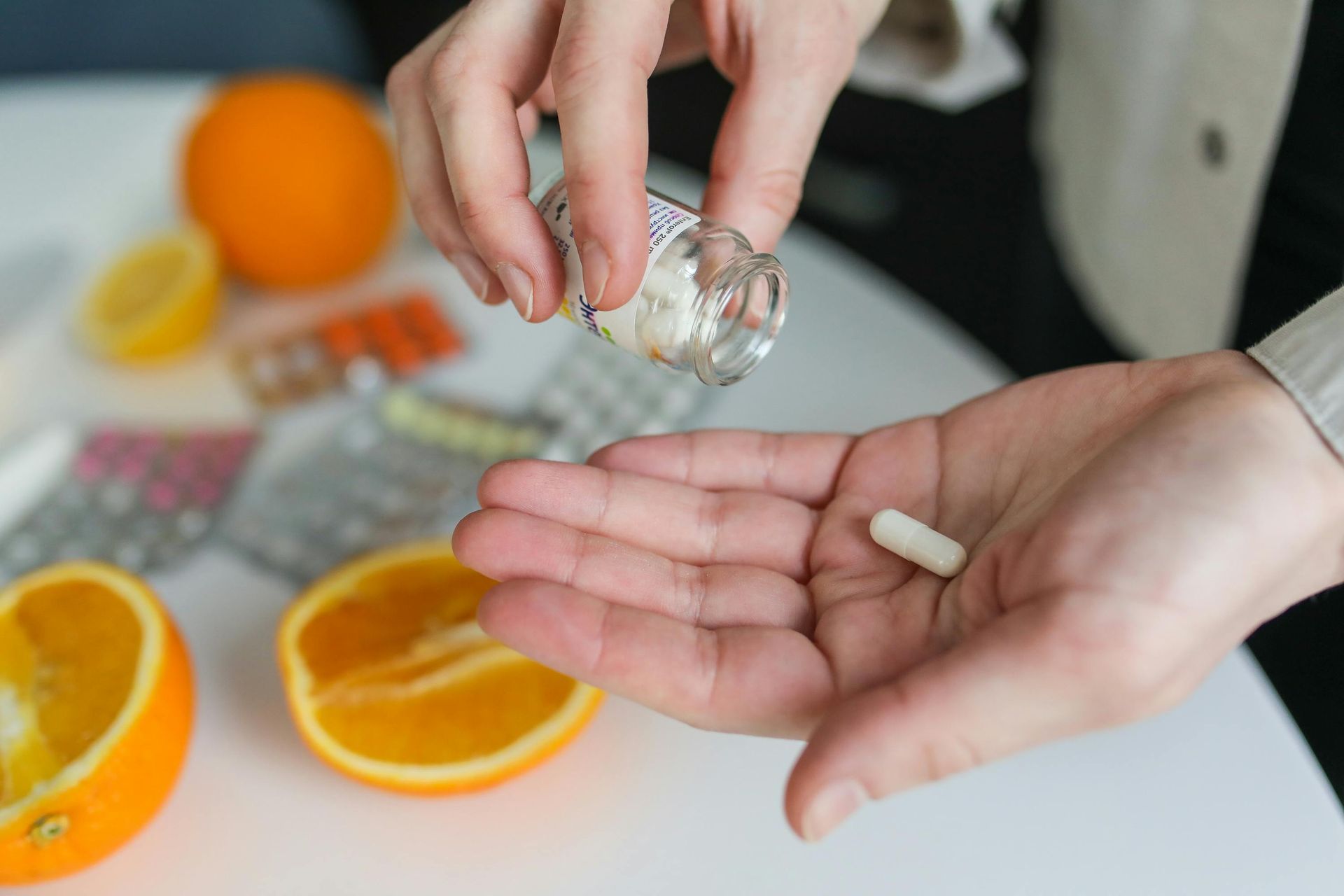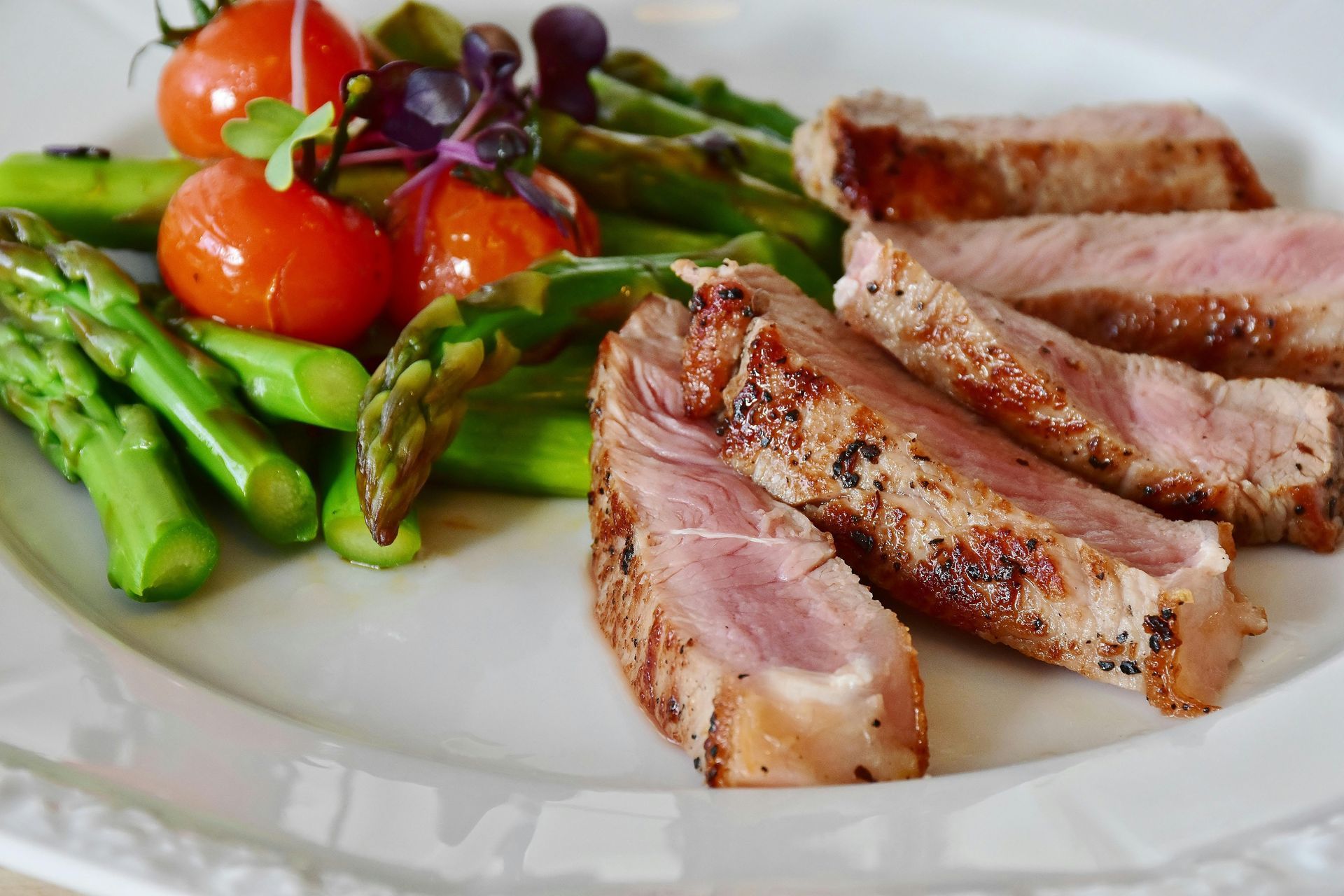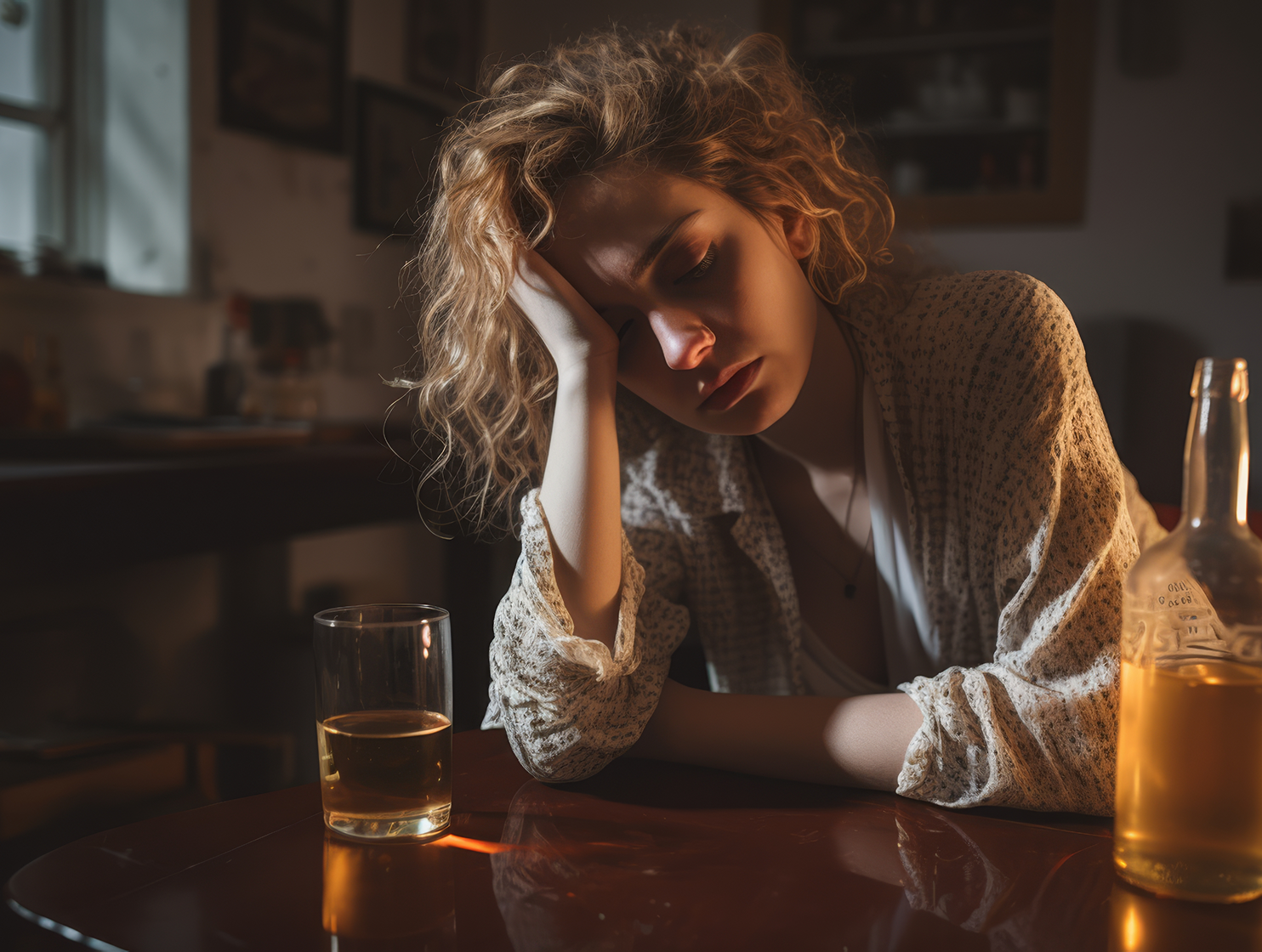5 Essential Tips for Effective Hangover Recovery

Joseph Lopez • May 20, 2023
Table of Contents
We've all been there: waking up after a night of drinking with a pounding headache, queasy stomach, and a general feeling of regret. Hangovers can be a real buzzkill, but luckily, there are ways to alleviate the symptoms and set yourself on the path to recovery. In this article, we'll explore some tips for overcoming your hangover woes and getting back to feeling like yourself again.
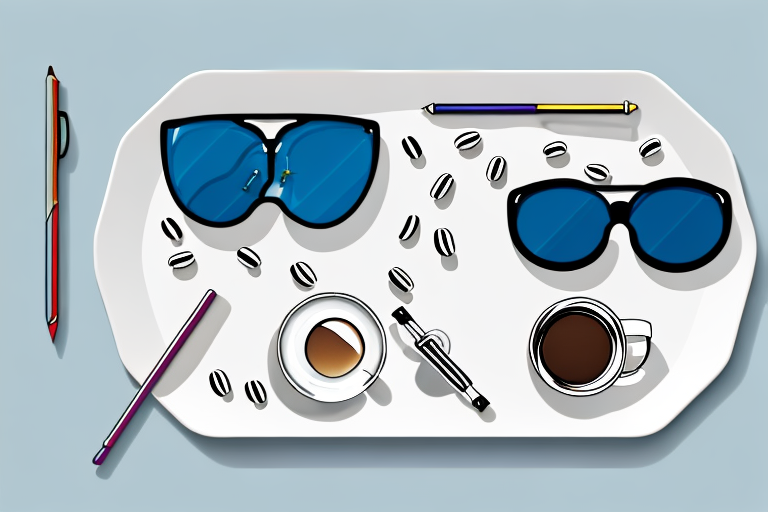
Understanding Hangovers
Before we dive into the tips, let's first understand what a hangover is and why it happens. When you consume alcohol, it enters your bloodstream and affects your brain and other organs in your body. Alcohol is a diuretic, which means it increases urine output and leads to dehydration. This dehydration can cause symptoms like headache, fatigue, and thirst, which are all common hangover symptoms. Other factors like a decrease in blood sugar levels, inflammation, and changes in your immune system can also contribute to hangovers.
Hangovers can be a real pain, and while everyone experiences them differently, they are generally a result of drinking too much alcohol. When you drink alcohol, it affects your body in many ways, including your liver, stomach, and brain. Your liver is responsible for breaking down alcohol, but when you drink too much, your liver can't keep up, and the alcohol remains in your bloodstream. This can lead to a variety of unpleasant symptoms, including those associated with a hangover.
Causes of Hangovers
There are a variety of reasons why hangovers occur. Drinking too much alcohol, not eating enough before drinking, alcohol intolerance, or drinking too quickly can all contribute to a hangover. Many studies have shown that the type of alcohol consumed can also play a role in the severity of your hangover. Darker-colored drinks like whiskey, brandy, and red wine have higher concentrations of compounds called congeners, which can lead to more intense hangovers.
Alcohol consumption can also affect your sleep, which can contribute to hangovers. When you drink alcohol, it can disrupt your sleep patterns, making it more difficult to get a good night's rest. This can leave you feeling tired and groggy the next day, making it harder to shake off your hangover symptoms.
Common Hangover Symptoms
Hangover symptoms can vary from person to person, but some of the most common ones include headaches, fatigue, nausea, vomiting, dizziness, sensitivity to light and sound, and muscle aches. These symptoms can make it challenging to get through even the most mundane tasks, let alone take on the day.
One way to alleviate some of these symptoms is to stay hydrated. Drinking plenty of water before, during, and after drinking alcohol can help prevent dehydration, which can make your hangover symptoms worse. Eating a meal before drinking can also help slow down the absorption of alcohol, making it less likely that you'll experience a hangover the next day.
Another way to reduce your risk of a hangover is to pace yourself when drinking. Drinking slowly and alternating alcoholic beverages with water or other non-alcoholic drinks can help you stay hydrated and reduce your overall alcohol consumption.
While there is no surefire way to prevent a hangover, being mindful of your alcohol consumption and taking steps to stay hydrated can help reduce your risk of experiencing one. If you do wake up with a hangover, be sure to take it easy, stay hydrated, and give your body time to recover.
Tip 1: Hydrate Properly
One of the most effective ways to combat hangovers is to drink plenty of fluids. Not only will this help replace fluids lost during drinking, but it can also help alleviate headaches and nausea. When consuming alcohol, make sure to drink water between each drink and before bed. Electrolyte-rich drinks like sports drinks or coconut water can also help replenish minerals lost during drinking.
It is important to note that dehydration can worsen hangover symptoms. Alcohol is a diuretic, which means it increases urine production and can lead to dehydration if not properly hydrated. Therefore, it is crucial to drink enough water to stay hydrated throughout the night.
Drink Water Before, During, and After Alcohol Consumption
Before you head out for a night of drinking, make sure to drink plenty of water. This will help hydrate your body and reduce the effects of dehydration caused by alcohol. During the night, try to drink water between each alcoholic drink. This will not only help you stay hydrated but also slow down the rate at which you consume alcohol. In the morning, aim to drink at least two glasses of water to help rehydrate your body and flush out toxins.
Additionally, drinking water can help reduce the severity of hangover symptoms. Headaches and nausea are common symptoms of a hangover, and drinking water can help alleviate these symptoms by rehydrating the body and reducing inflammation.
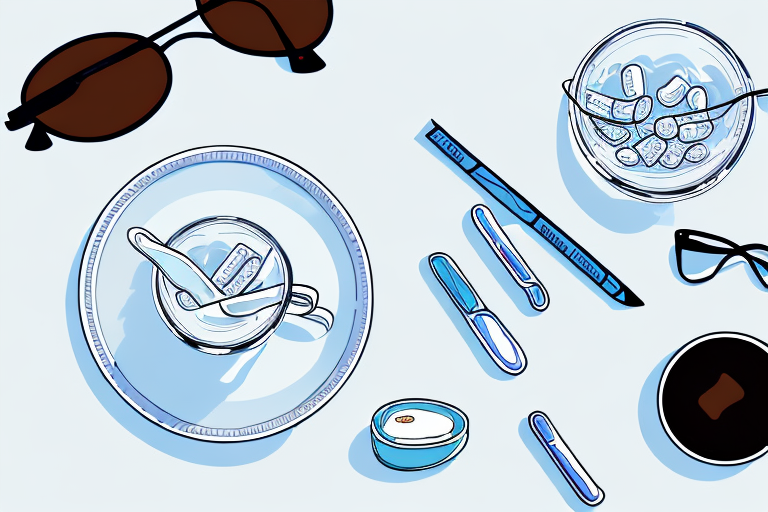
Replenish Electrolytes with Sports Drinks or Coconut Water
Electrolytes like potassium, magnesium, and sodium are essential minerals that help regulate bodily processes. Alcohol consumption can lead to a loss of electrolytes, which can contribute to hangover symptoms. Drinking electrolyte-rich drinks like sports drinks or coconut water can help replenish lost minerals and alleviate hangover symptoms.
It is important to note that sports drinks can be high in sugar and calories, so it is best to choose a low-sugar option or dilute the drink with water. Coconut water is a natural and low-calorie option that contains electrolytes and can help hydrate the body.
Overall, staying hydrated is key to preventing and reducing hangover symptoms. Drinking water before, during, and after alcohol consumption, and replenishing electrolytes with sports drinks or coconut water can help alleviate the effects of alcohol on the body.
Tip 2: Eat Nutrient-Rich Foods
What you eat before and after drinking can play a significant role in how severe your hangover is. Consuming nutrient-rich foods can help support your body's recovery and alleviate hangover symptoms. Here are some additional details on the topic:
Foods to Eat Before Drinking
It's essential to eat a meal rich in nutrients like protein, fiber, and healthy fats before you start drinking. This can help slow down the absorption of alcohol and delay the onset of hangover symptoms. Eating a heavy meal before drinking can also help you avoid getting drunk too quickly. Some great options include:
- Eggs: Eggs are a great source of protein, which can help slow down alcohol absorption. They also contain cysteine, an amino acid that helps break down acetaldehyde, a toxin that builds up in your body when you drink alcohol.
- Avocado toast: Avocado toast is a trendy and nutritious option that's packed with healthy fats and fiber. The healthy fats in avocados can help protect your liver from damage caused by alcohol.
- Oatmeal: Oatmeal is a great source of fiber, which can help slow down alcohol absorption. It also contains B vitamins, which are essential for energy production and can help alleviate hangover symptoms.
Foods to Eat During a Hangover
When you're experiencing a hangover, your body needs nutrients to support its recovery. Eating foods rich in fiber, protein, and healthy fats can help restore your energy levels and reduce hangover symptoms. Here are some great options:
- Bananas: Bananas are an excellent source of potassium, which can help replenish electrolytes lost during drinking. They also contain vitamin B6, which can help alleviate hangover symptoms like nausea and fatigue.
- Nuts: Nuts are a great source of protein, healthy fats, and fiber, making them an ideal snack during a hangover. They can help keep your blood sugar levels stable and reduce inflammation in your body.
- Whole-grain toast: Whole-grain toast is a great source of fiber, which can help regulate your digestion and prevent nausea. It's also a good source of carbohydrates, which can help restore your energy levels.
- Smoothies: Smoothies are an excellent way to get a variety of nutrients in one drink. You can add fruits like berries, which are high in antioxidants, and leafy greens like spinach, which are rich in vitamins and minerals.
Remember, eating nutrient-rich foods is just one way to alleviate hangover symptoms. It's also important to stay hydrated and get plenty of rest to support your body's recovery.
Tip 3: Get Enough Sleep
Getting enough sleep is critical to your body's recovery process. Alcohol can disrupt your sleep patterns, which can exacerbate hangover symptoms and make it harder to recover. Aim to get at least 7-8 hours of uninterrupted sleep the night after drinking to help your body's recovery.
The Importance of Sleep for Hangover Recovery
While you sleep, your body goes into a state of repair and restoration. Sleep helps your body restore energy levels, reduce inflammation, and regulate hormone levels. All of these processes are essential for hangover recovery.
Moreover, sleep is crucial for your overall health and well-being. Lack of sleep can lead to a weakened immune system, increased stress levels, and a higher risk of developing chronic health conditions such as diabetes, obesity, and heart disease.
Therefore, getting enough sleep should be a priority not only when you have a hangover but also in your everyday life.
Tips for Improving Sleep Quality
Improving your sleep quality can help you get the most out of your recovery time. Try to establish a bedtime routine that includes turning off electronics, avoiding caffeine before bed, and practicing relaxation techniques like meditation or deep breathing.
In addition, creating a sleep-conducive environment can also improve your sleep quality. Make sure your bedroom is dark, quiet, and cool, and invest in a comfortable mattress and pillows that support your body's natural alignment.
Lastly, if you struggle with sleep, consider seeking professional help. A healthcare provider can help you identify any underlying sleep disorders or provide guidance on how to improve your sleep habits.
Tip 4: Take Over-the-Counter Medications
Over-the-counter medications can be a lifesaver when it comes to alleviating hangover symptoms. While they may not be a cure, they can certainly help you feel better and get through the day.
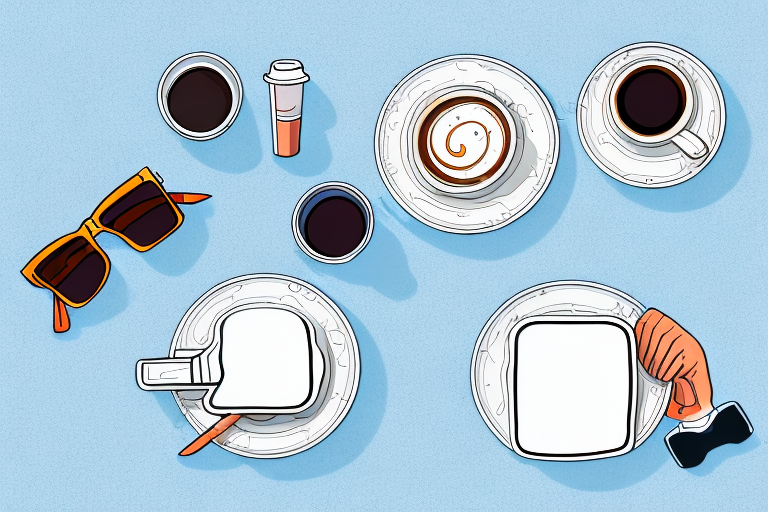
Pain Relievers for Headaches
One of the most common symptoms of a hangover is a pounding headache. If you're experiencing this, taking an over-the-counter pain reliever like ibuprofen or acetaminophen can be a good option. These medications work by blocking the production of prostaglandins, which are chemicals that cause pain and inflammation in the body. Follow the recommended dosage and avoid taking more than the recommended amount, as this can be dangerous.
It's important to note that while pain relievers can help alleviate headache pain, they won't necessarily address the root cause of the headache. Dehydration and electrolyte imbalances are often the culprits behind hangover headaches, so be sure to drink plenty of water and replenish your electrolytes with sports drinks or coconut water.
Antacids for Nausea and Indigestion
Another common hangover symptom is nausea and indigestion. If you're feeling queasy or experiencing stomach pain, taking an antacid like Pepto-Bismol or Tums can be helpful. These medications work by neutralizing stomach acid and reducing inflammation in the digestive tract.
It's worth noting that while antacids can help alleviate symptoms, they won't address the root cause of the nausea and indigestion. Alcohol is known to irritate the lining of the stomach and increase acid production, which can lead to these symptoms. To prevent them in the future, consider drinking in moderation and eating a meal before consuming alcohol.
In summary, over-the-counter medications can be a useful tool in managing hangover symptoms. However, it's important to use them responsibly and not rely on them as a cure-all. Remember to drink plenty of water, replenish your electrolytes, and practice moderation when consuming alcohol.
Tip 5: Practice Moderation
While there's no guaranteed way to avoid a hangover, practicing moderation can help reduce the severity of your symptoms. But what exactly does practicing moderation mean? It means being mindful of how much alcohol you consume and taking steps to minimize its effects on your body.
One way to practice moderation is to drink water between each alcoholic drink. This helps to keep you hydrated and dilutes the alcohol in your system. Another way is to eat nutrient-rich foods before and during your drinking session. This can help to slow down the absorption of alcohol into your bloodstream and provide your body with the necessary vitamins and minerals to combat the effects of alcohol.
It's also important to avoid sugary drinks, as they can worsen your hangover symptoms. Sugary drinks can cause your blood sugar levels to spike and then crash, leaving you feeling even more tired and dehydrated than before.
Hangovers can be a real downer, but with a few simple strategies, you can get back on your feet and start feeling like yourself again. By hydrating properly, eating nutrient-rich foods, getting enough sleep, taking over-the-counter medications, and practicing moderation, you can alleviate your hangover symptoms and move on with your day.

